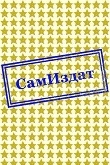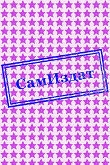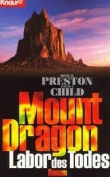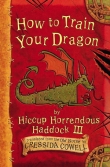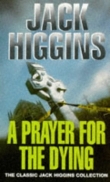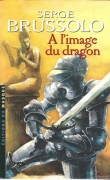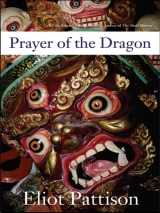
Текст книги "Prayer of the Dragon"
Автор книги: Eliot Pattison
Жанр:
Полицейские детективы
сообщить о нарушении
Текущая страница: 15 (всего у книги 24 страниц)
Hostene produced his feathered stick from inside his vest and stirred the air over Gendun.
Shan translated for Dolma. She cocked her head a moment, studying him with an expression of wonder. “My grandmother spoke of having her face painted in such a way when she was sick.” She rose, retrieved a small, cold brazier from below the window shelf, then rubbed soot onto two fingers and began painting Gendun’s face.
Shan rose to intercept Gao, who stepped forward.
“My nephew lies mutilated and murdered. I don’t even have all his body to bury and you indulge in this-this sorcery session.” Gao spoke in Chinese, thinking no one else could understand. “Chodron is right. At heart you are the worst kind of reactionary.”
Lokesh halted his mantra. “He is wandering aimlessly right now, deeply afraid, unwilling to accept that he has crossed over so early, not mindful of the terrible dangers that lurk about him.” Lokesh spoke in such a calm voice, in such perfectly articulated Chinese, that Gao looked about him, as if to identify the source of the unexpected words. Lokesh gazed at him inquisitively.
“What-who are you speaking of?” Gao asked hesitantly.
“The boy. Your nephew. I am very sorry he was taken away. But there are words that must be said or he may become an angry ghost, doomed to roam the slopes forever.”
“He was a scientist,” Gao rejoined. “From a family of scientists. We don’t believe. .” He paused, frowning, as if wondering why he was debating with the old Tibetan. “My nephew needs nothing now that a firing squad can’t provide.”
“You are speaking of the murderer,” Lokesh said. “I am speaking of your nephew, and of you. I think being a scientist is something that is in the body. I am speaking of what happens to the kernel when it rises from that husk.” The old Tibetan groped in his pocket a moment, then extracted a tsa tsa, a small clay tablet bearing the image of a deity. “Take this,” he said, handing it to Gao. “There will come a time soon when you feel your nephew close by. Hold this in your hand when you do, and let him know we are working to help him find his way. When Gendun awakens we will recite the death rites for him for the next seven days.”
Gao stared at the little clay image in confusion, as if trying to understand how it had appeared in his hand. Shan thought he was going to pocket the tsa tsa but then, with a look of revulsion, Gao threw it against the back wall, shattering it into a dozen shards.
“If you prefer,” Lokesh offered in the same level tone, “I could teach you some of the words.”
“Be quiet, you damned fool! It’s this kind of nonsense that lured my nephew to his death.”
Shan was about to protest, to point out that the lamas had never even met Thomas, when he realized Gao meant Abigail Natay’s particular form of nonsense. Abigail had fled the safe side of the mountain to continue her work on the ancient shrines. Thomas had followed her.
“Your shining consciousness has no birth, no death.” Lokesh spoke the opening words from the death rite facing the shadows, where the deity lay shattered on the floor.
Anger flared on Gao’s face, followed by despair. He retreated. Shan followed him to the foot of the stairs. “I am only able to search the mountain,” Shan said.
“What do you mean?”
“Something is finishing here. It didn’t start here. There are men up there who are hiding things.” Shan quickly wrote a name on a scrap of paper and handed it to Gao. “He was in Public Security and was stationed somewhere in Tibet, I think. I need to know where he served, what his duties were. And there’s something else.” He leaned forward, speaking close to Gao’s ear. The scientist’s frown grew deeper.
There was movement behind them. Hostene stood on the steps.
“I came here to offer to take you back to my house in the helicopter,” Gao said to the Navajo. “There is plenty of room. You are in no condition to climb the mountain.”
“Even if Shan wasn’t going, I would go back. I won’t let my niece die.”
“When Shan finds her, he will let us know.”
“He’s right, Hostene,” Shan interjected. “We’re aware of your sickness. Don’t make things worse.”
Hostene, confused, searched their faces. “You mean my cough?
I smoked for twenty years. It’s the price I pay. Doctors say my lungs are good enough, for my age.”
“The medicines,” Gao said, “for cancer.”
Hostene sank onto the step. “That’s a private thing,” he said.
“You’ll do your niece no favors by getting sick on the mountain,” Shan said.
Hostene was forced to explain. “An old family doctor put the prescriptions in my name, so no one would suspect that Abigail was ill. What you saw was the extras I was carrying.” He looked up at Shan. “You asked once why completing her work is so urgent for her.”
“What are you saying?” Shan asked, a chill spreading down his spine.
“It isn’t me. It’s Abigail who has cancer. They give her no more than a year to live.”
Chapter Nine
Screams mingled with Shan’s nightmare of Gendun in tamzing again, growing louder and louder, until he became aware that Lokesh was shaking him. The desperate shouts came from outside, spreading from one house to the next as Drango’s inhabitants caught sight of the flames. The barley fields were on fire.
Few things are drier than a field of barley ripe for harvest. The flames swept inward as if famished, gorging on the paper-crisp stalks. Within minutes every man, woman, and child in the village were in the fields, battling with brooms, buckets, and shovels. Soon some collapsed onto their knees, breaking into helpless sobs. The barley was their life, their food supply for the brutal winter ahead. The tsampa, the gruel, the kernel-laden soup, the fodder that would keep them and their animals alive was disappearing in a wind-driven inferno. Chodron shouted furious orders for more buckets, for a trench to be dug from the stream, but no one seemed to hear him. Another voice rose, younger and surprisingly calm. Yangke was wielding a sickle. Soon a dozen men were following his example, cutting a swath to deprive the advancing fire of its fuel, sealing off a small quadrant of the crop with a fire break.
Shan paused at the edge of the field, surveying the grim scene. The fire had started at the top of the field, feeding on the predawn downdraft from higher elevations, ignited at half a dozen places, probably by someone running with a torch. As he gazed at the devastated village he caught snippets of frantic conversations. Someone said it must have been lightning. Someone else said he had seen a flame suspended in the air, magically moving along the top of the fields, faster than any man could run. Someone, pointing, said Chodron had received an invitation from a demon. Shan followed the gesture, walking toward the granaries, stopping in the shadows when he discovered the village headman standing in the circle of pressed earth, staring at a dead sheep. The animal had had its throat cut and was propped on its haunches with sticks so that its lifeless eyes seemed to be watching the house of the headman. Stuffed in its mouth was an ornate silver pen case. A case Shan had seen before. Tashi’s pen case. He watched Chodron hesitantly open the case. It was empty.
Shan spotted Hostene and jogged to his side. The forlorn cries of the villagers rose in volume. They worked beside Yangke, pulling away the stalks as he cut them, stomping out embers as they landed on the cleared swath of earth. Shan watched as Chodron appeared, running upward. A new field caught with a sudden terrible swoosh of hot air as Shan darted behind the nearest structure.
Chodron’s house was empty, the back door open. The office was still padlocked, but using a stone and a heavy nail he had taken from the stable the night before, Shan began working on the hinges. He quickly popped the pins and swung the door aside.
Inside, he lit one of the candles on the desk. Wiping his hands clean of soot on his trouser legs, he began sifting through the papers on top of the compact desk, then searched the drawers and folders stacked on the table along the wall. This is what Shan had done best in his previous incarnation, finding and interpreting the secrets of the corrupt. He had once been feted as a Hero Worker for deciphering the code in a ledger used by a Ministry of Energy deputy minister to send millions to bank accounts in Hong Kong. Chodron’s files held reports about the harvest, medical care, party meetings, expenses for quarters in Tashtul town, everything but what Shan sought. He puzzled over how Chodron had managed to keep the village official for some purposes, like enrolling its children in government boarding schools, but unofficial for others, like keeping out watchful administrators, census takers, and tax collectors. He eyed the books on the high shelf over the table-Party scriptures, a collection of essays on socialist thought for agrarian communities, even a book dealing with the treatment of fungus in barley. Only one book showed any sign of use.
Chodron was not subtle, though Shan had to admire his daring. The headman had removed the contents of a hardcover copy of The Quotations of Chairman Maoand glued a ledger within the boards. He had hidden his secrets in plain sight. The sinner had disguised his transgressions with his bible.
It was an impressive volume, Shan had to admit. For over ten years, Chodron had recorded payments from miners, collected in early September as they passed through his makeshift tollgate on the trail above town. Each year’s entry listed miners’, changing slightly year to year, gradually lengthening until the past year showed payments from forty different names. Two names had been scratched out at the end of the past season, another a month earlier.
He leafed back and forth among the most recent annual accounts. Only the current year and the prior one had any names removed. All the previous years’ entries appeared to have been completed on the same day, with the same pen and same ink, listing name and payment as received. But the last two lists were different. The names had been prepared in advance of the payment date, pursuant to a more organized system, utilizing a list of names provided in advance with payments registered on the payment date. Chodron had become Bing’s partner.
Shan remounted the door on its hinges, tapped in the pins, and stepped outside into a swirl of smoke. He went toward Chodron’s generator, unscrewed the gas cap, and dropped a handful of dirt into the tank. The smoke thickened, conveniently concealing his return to the fields. He located Hostene and took up a position beside him, pulling back the stalks as the men in front swung their sickles.
Shan did not notice when Hostene departed. He became aware that Yangke had paused. Shan followed the young Tibetan’s gaze toward the nearest granary, where a smoke-stained figure stood with two packs in his hands. Shan realized the Navajo was right. They could ill afford to be within reach of Chodron’s fury when the flames had run their course.
Yangke put a hand on Shan’s shoulder. “I will try to find you,” he said in a bone-weary voice. “Lha gyal lo.”
By the time they reached the path above the village the sun had risen above the ridge, and they could see the full extent of the devastation. No more than a tenth of the crop survived. It was the end of life as the villagers had known it. They could not survive without appealing to the township authorities. Then the authorities would arrive to assess their plight. The end would come quickly.
“Who would do such a thing?” Hostene asked.
“Someone who wants Chodron to lose,” Shan said.
“The murderer?”
Shan pointed to a set of bicycle tracks that veered off the trail along the top of the fields. The flame that ignited the barley had moved faster than a man could run.
“Murder,” Shan replied, “is only part of the war being waged on this mountain.” But in the short term, he knew murder would be Chodron’s sole obsession. For if Chodron the harvest manager was deprived of his victory, then Chodron the village magistrate would need an even more spectacular success. Shan tightened the straps of his pack and with grim determination headed up the mountain.
Lightning began to strike an hour later, a single bolt at first, starting at the distant summit, then a dozen more, approaching in rapid succession, shaking the ground, singeing the air, emitting a metallic scent of ozone. A huge dark cloud, nearly black, settled over the mountain, creating an eerie twilight. Now the lighting began in earnest. Most of the bolts were concentrated near the summit but some struck much closer, one less than a hundred yards away. It was as if some angry deity had awakened and begun hammering the mountain.
Shan and Hostene ran for shelter under an overhanging ledge. Hail fell, marble-sized balls that were blown sideways by a sudden gust, slashing at them so hard they had to turn and face the stone, their backs to the onslaught. Then it stopped as abruptly as it had started. Except for the hail it had been a dry storm, the kind that made Tibetans believe in mountain gods.
As the sun emerged, they surveyed the now deceptively tranquil mountainside.
“Why does she lead her killer?” Shan was not even certain he had given tongue to his thought until he saw the old Navajo stare at him in alarm.
“Why do you say such a thing?”
“Each of them has a destination, up the mountain somewhere. They have discovered it is the same one. I think she knows more about how to find it than the killer does. And the killer knows it.”
“You said herkiller.”
“I am sorry, Hostene, but whoever is doing this won’t release her when they reach their goal. And I think she realizes this. Now I understand why she acts as if she has little to lose. If she’s convinced she’s dying,” Shan continued, “if she truly believes she will be gone soon, then completing her work is everything.”
“Her work,” Hostene repeated. “It’s not work anymore. It’s all part of the same thing now. The guilt she feels toward her dead parents. The need to put things in balance. She came to me that night at Gao’s, in tears. She said something that kept me awake for hours. It was wrong that Tashi and Ma had died too, she told me. The more I thought about it, the more it alarmed me. She was saying she was the one who was meant to die.”
In his mind Shan had been revisiting the videos of Abigail he had watched with Hostene, viewing them not as the work of a brilliant professor but of a troubled woman who knew she was dying. “That’s what she’s been doing all along,” he said softly. “Connecting with lost gods.” A minute passed before he spoke again. “The words she wrote you at Gao’s house. ‘In Beauty before me I walk.’ What is their origin?”
“They’re from our Blessing Way. Our chant to open dialogue with our holy ones.” He gazed out over the tortuous terrain ahead of them and nodded. “She’s become more of a Navajo in Tibet than she ever was as a girl in New Mexico. But no one kills for the old gods,” Hostene observed in confusion.
This was a leap Shan was not prepared to make.
They turned onto the track that led to Little Moscow. The trail was blocked with lashed poles, tied together and jammed against rocks to form a gate. The poles bore patterns of colored stripes at the top, in different orders, as if the miners were sending a unified warning to all trespassers. Beyond the poles, on the trail, was the headless carcass of a sheep.
Shan followed Hostene’s worried gaze back toward Drango village, where the smoke still spiraled high. Fire behind, vengeful miners ahead. It was time, as the Tao te Ching said, to block the passages and close the door. He turned back to Hostene. “I think we should pick some flowers,” he announced.
Managing Director Bing was perched on a boulder at the mouth of the ravine watching the column of smoke from Drango when they approached Little Moscow.
“You have the balls of a water buffalo, Shan,” he muttered as they arrived at his side. “Two days ago every miner on this mountain wanted both of you dead.”
“Two days ago Thomas had not been murdered. That changes everything. With Dr. Gao watching, who will dare try to eliminate his investigators?”
“Dr. Gao can’t tell the fox from the hens,” Bing shot back. Then he gestured toward the smoke. “How bad?”
“The village stands. The crop is all but destroyed.”
Bing ran his hand through his thick hair, muttered a low curse.
“Not particularly well planned,” Shan suggested. “How will Chodron keep the village fed without calling on the government for assistance? But why should a village need grants of food supplies when it never did before? That alone will set off an investigation. You and Chodron better forget the gold and start planting peas.”
Bing glared at him. “You can’t think wehad anything to do with it.”
“As you said,” Shan observed, “Little Moscow exists in a bold new world. Where every man can live up to his full potential.”
There was something different about the miners’ town, Shan thought as he followed Bing into it. The photographs of family were stowed away, the little signs setting forth mileage to hometowns gone. The men had eradicated any evidence of who they were when off the mountain. They were growing suspicious of one another. A rooster stood tied to a pole by one lean-to, as vigilant as a dog. The birdcage he had seen on his former visit was gone, replaced by a plank upon which someone had inscribed an old-style charm against evil ghosts. The few miners who showed themselves glanced warily at Shan and Hostene. Shan walked along the perimeter of the town’s central square, pausing for a moment to study the crumbling fresco, noting the small oval shapes that had outlined some of the sacred objects depicted in the painting, squatting for a moment to examine the section that had fallen out and been placed by the entrance to Bing’s quarters, a fragment showing the head of a fanged creature that appeared half human, half lion.
Bing directed them to the central fire, where he poured tea into metal mugs. “We are honored to entertain the ambassadors from the great court of Gao,” he said mockingly. “But there’s nothing more to find here about the murders.”
“Murders?” Shan asked. “I have recognized my assumptions were faulty. I am now doing research into the creativity of entrepreneurs in the socialist market economy.”
Bing raised his cup in salute, gesturing toward his community of miners who were assembling, forming a circle around them. “Here you see the future of China at its birthing.”
Shan swallowed half the contents of his cup. Hostene began extracting items from his pack.
“The miner who was killed last year,” Shan said abruptly. “What happened to him? Were there witnesses? Why did you conclude that his partner had killed him?”
“You said you weren’t interested in murders anymore.”
“On this particular mountain, corpses are but another resource determined by supply and demand. So much so that when you run out of murders you borrow a body and call it a murder.”
Bing glared in silence at Shan, then glanced sharply at the Navajo. He made a small gesture to Hubei, his wiry, bulldog lieutenant, who fetched one of the shovel handles. “We don’t believe in digging up old ghosts.”
“But that’s my job,” Shan said. “Reviving old ghosts. Making them speak, tapping their wisdom.”
Bing was disturbed. “Talk like that scares people. Every day they’re more superstitious here. Look what they’ve done. Some hang charms outside their quarters. One man bought an old prayer box from a farmer, because he says the only gods here are Tibetan. Another put his rooster outside because his grandmother once told him they frighten off evil spirits.”
Shan nodded at Hostene, who had now arranged certain of the contents of his pack on his brightly colored blanket-his feathered spirit stick, a bag of pollen they had collected from flowers picked on the trail, the leg bone of a yak they had found near the path.
A worried murmur swept through the onlookers. Each miner represented a separate mystery to Shan. The only thing he knew for certain was that they were all superstitious.
“What the hell is he doing?” demanded Bing.
“Hostene is frightened of ghosts too,” Shan declared in a voice loud enough for all to hear. “He is going to perform a ceremony to speak with them, to ask them why they are so upset with Little Moscow, why they think someone is lying to them.”
Bing’s mouth opened in protest. “He’s an American” was all he could manage.
“He’s an American Indian. A shaman among his people. A ghost speaker.”
“Sorcerer!” someone barked.
Shan studied the men. Half a dozen had lowered themselves to the ground, forming a wide circle around Hostene. Others had stepped out of their dug-out homes and anxiously watched from the shadows. The Navajo began murmuring in his native tongue, arms flying toward the heavens. Hubei backed away several steps, then hurried off.
“I want him stopped,” Bing muttered to Shan.
“He is speaking to the ghosts, asking them to tell us the truth.
Surely the citizens of your bold new world have nothing to fear from old world ghosts. Or is it you who are scared of ghosts, Captain Bing?”
“What do you want?”
“The man who died last year. What exactly happened?”
“He was found with a chisel in his back and a bloody patch on his head where he had fallen against some rocks. A shopkeeper from Guangzhou had come here with him, his partner. But they were always arguing with each other, and with the rest of us. We confirmed it was his partner’s chisel.”
“We?”
“Hubei and I.”
“And the killer?”
“No one knows how hedied. All we found was his skeleton.”
“Wearing his old ring. A skeleton with jewelry. Even the dead adapt here.”
“That’s when we organized ourselves. Signed articles governing Little Moscow, so it would be a safe harbor, a place to keep supplies.”
“And that’s when they elected you to lead them,” Shan pointed out.
“The murder made it clear that someone had to do it. I had government experience. It was my duty to accept the nomination.”
“Supply and demand again,” Shan pointed out. “After all these years, a need for protection arose, and the perfect candidate was there to fill it.”
Outside, Hostene was speaking in his tribal tongue, holding the bag of pollen up to the sky. “There are still some who consider him a killer,” Bing ventured.
“Where’s the body of the man who was killed last year?”
“I don’t know. We left him under some rocks. But when the wolves get hungry enough-” Bing finished with a shrug.
“You’re saying you haven’t been back to the grave?”
“I had no reason to go there.”
Shan considered Bing’s calculated lack of interest. He decided not to ask the question that leapt to his tongue. Instead he said, “When I go to Tashtul town, where will I find the gold agency?”
“What are you talking about?”
“Where does one go to sell gold? Officially, only the government buys gold.”
Bing replied, “You’re not actually going to Tashtul.”
“A fascinating idea, though. The miners disperse all over China come autumn, they have black markets all over China to go to. But you and Chodron, you need to convert the share of gold paid to you by the miners somewhere much closer. It’s against the law to exchange it without involving the government. The Ministry of Mines is the flaw in your business model. It restricts the upside potential of your enterprise. The worst possible partner in a conspiracy is a bureaucrat. You’d be surprised how quickly such officials can be made to sing. Investigators love to start with bureaucrats because they harbor no delusions about the criminal justice system. And this year,” he added, “some of the miners have already converted some of their gold into cash, in the middle of the summer. As if there were a new gold dealer nearby. Or a bank.”
Bing glared at him, then shrugged. “You have no way off this mountain. If you try to go to Tashtul, Chodron will make sure you’re never seen again.” He pushed the canvas flap aside, his anger building, as Hostene began sprinkling pollen on the miners’ heads. Bing cursed under his breath and hastened back to the square.
Shan found Hubei packing a sack with mining equipment near his lean-to.
“That last day Thomas was here, before I arrived, what was he speaking about? Who was he speaking with?”
“Everyone.” Hubei did not stop his packing, but did not hesitate to answer. “Anyone who came along. One moment he was hawking his wares, the next bragging that he knew how to catch criminals.”
“What did he say about catching criminals?”
“Forensics, he called it. He claimed he could tell what made a wound by examining the blood spatter, could tell if a man was dead or alive when he was stabbed or shot by whether blood had flowed out of the body. Bones. Bullets. Fingerprints.”
“What about bones?”
The miner tied off the top of the pack. “Fractures. A skull fracture from a fall made a long crack. A skull fracture from a hammer might knock out a circle of bone. A leg fracture from a car accident was different from one where the leg was held down and smashed.” The miner raised the pack onto his back.
Thomas had spoken of how a victim’s bones could betray a murderer, and then Abigail had seen Bing tossing old bones from a cliff.
“Did you help bury the man who died last year?” When the man did not reply Shan blocked his exit from the shelter. “Did he still have his hands?”
Hubei lowered the pack and rubbed a hand over his face. “There was no need for the others to know about that. We rolled the body in a blanket before they could look.”
“Which means you know his partner was notthe murderer.”
Hubei glanced toward the square, where Bing was putting Hostene’s ritual instruments back into his pack even as Hostene continued dispensing pollen. “Maybe there are different murderers. New people came to the mountain this year. Last year, we softened the man’s partner up with a couple of shovel handles, enough to scare him off the mountain. We borrowed his ring before he left,” he admitted.
Shan nodded at the confirmation of his suspicion. “By my count that makes ten hands that have been severed and taken away. How many do you suppose this killer needs? An even dozen? A score? You’re a brave man, going back to your claim alone. Be sure to get some of that pollen sprinkled on your head before you leave.”
Hubei winced, rubbing at the tattooed numbers on his forearm, the nervous reaction of a former prisoner. Hubei was wise in the ways of the world. He, at least, understood that they were on the brink of disaster. His hand went to his belt. For the first time Shan saw an old military knife tucked in his waist.
“You aren’t going mining,” Shan observed.
“No one is to get past the claim Bing posted down the trail. Between patrols I’ll push some rocks around and pan the streams.”
“The problem with being in the middle of a war, Hubei, is that everyone eventually has to choose a side.”
“I’m on the side of my family,” Hubei said. “You should get out of the way. Leave the mountain, Shan, and the war ends.”
Shan said, “I’m not leaving until the murderer is caught.”
For a moment Hubei looked as if he meant to argue with Shan. Then his attention focused on the town square of Little Moscow, which had gone very quiet except for a voice chanting in Navajo. “He’s had a message.”
“Bing?”
Hubei nodded once more. “From that damned woman. He says she came to him yesterday when he was alone working his claim, asking him to give a note to her uncle. We should’ve stopped her the first day she arrived, and sent her away from the mountain. She’s nothing but bad luck.”
“He knows we are looking for her. Why didn’t he give the message to me?”
“A man like Bing doesn’t share secrets. He uses secrets.”
“He told you. He told Chodron.”
“Me, because he doesn’t read English. Only me,” the miner added pointedly.
Shan didn’t wait for Bing to return to his makeshift house. He quickly slipped inside the shelter of rock and canvas, and began searching, starting at the entry from which he surveyed the entire chamber before examining each chink in the rock wall. When he finished with the wall, he searched under the pallet on the floor, then moved to the jacket hanging on a peg. The note was there, in an inside pocket sealed with a zipper. It was written on a page torn out of a journal, the same thick unlined paper she’d used for her note at Gao’s house. It was the same handwriting. “I am safe,Abigail had written , and on the way to Tashtul town. After what happened to Thomas I cannot bear to stay here. I have research to do in Lhasa and will wait for you there at the hotel we stayed at before.”
He put the paper into his own pocket and walked down the nearest of the little alley ravines to the square. Hostene was pacing around the circle of men still, blowing pollen onto them. No one was ridiculing the Navajo now. These were men who would take a blessing any way they could. Even Bing stood and let Hostene scatter the yellow spores on him, as did a new arrival who stood at the rear, watching with a curious, uneasy expression. Yangke had found them.
Shan retreated to consider Abigail’s note. Bing was keeping her departure a secret even from his patron and partner, Chodron.
A sound came from behind him, a soft, summoning whistle from the shadows. He glanced back to confirm no one in the square had noticed. He did not see the heavy loading boom over his head or the flicker of movement until it was too late. The loop of rope, expertly thrown, cleared his shoulders and was tightened around his waist, pulling him off his feet as it was raised by the overhead pulley, suspending him six feet in the air, his arms pinned to his sides. A man came out of the shadows holding a pole. He wore a hooded black sweatshirt, the hood drawn so low that the man’s face was obscured, even when he began to beat Shan.
By the time Shan tried to call out, he had no breath left with which to speak. His assailant concentrated on his ribs and abdomen, delivering no bone-breaking blows but inflicting maximum pain. The pole, Shan noted, was of juniper. A sacred wood should not be used for such a profane task, he thought.

